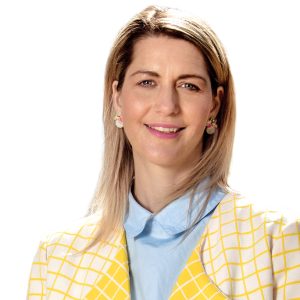Health and weight loss are the top two New Year resolutions, followed by diet and personal-growth goals, reports BELINDA STRAHORN.
A NEW year brings a fresh opportunity to reflect on the year that’s passed and to consider adopting a New Year’s resolution.
While many of us have made resolutions in the past, some of which we fulfil, many don’t survive the month of January.

Canberra Head to Health Centre psychologist Aflaha Khan argues that a New Year’s resolution can be a good way to plan for the year ahead.
While Khan, 28, concedes she’s never made one herself – relying instead on planning throughout the year – she believes that the new year is the ideal time for people to address the things that need changing in their lives.
“The new year tends to be a temporal milestone that facilitates people to take stock and reflect on the past year, what they have achieved and to look ahead to what they want to achieve in the next year,” she said.
“I think it’s important for all of us to sit back and think a little bit more about the things we have achieved and where we want to go in the future.”
Khan advocates for setting goals that align to one’s personal values.
“If a resolution is meaningful and related to an actual value we have, then it ensures we stay motivated to achieve that goal when things get tough,” she said.
“If your goal is to lose weight you could provide yourself with a reason like ‘this is important for my health’, and in those times when you are really craving a donut, then you have in mind why you set that goal and it should keep you going.”
To make the goal easier to reach, Khan recommends breaking it down into smaller steps and following the SMART acronym.
“Use the approach of making your resolution Specific, Measurable, Attainable, Relevant and Time constrained,” she said.
“That acronym really helps you think through the specifics of the resolution, which means you may be more likely to plan how you will achieve that goal and recognise when you have achieved it.”
Khan revealed that a recent survey into New Year’s resolutions found that at a one year follow-up, 55 per cent of resolvers considered themselves successful in sustaining their goal.
Health and weight loss were the top two resolutions, followed by diet and personal-growth goals.
The study also showed that people who set approach-oriented goals were more successful than those who set avoidance-oriented goals.
“An approach-oriented goal means you are making a goal about doing something as opposed to not doing something,” Khan said.
“For example, if you are setting a goal like: ‘I want to stop being late for work every day’, that would be an avoidance-oriented goal because it’s about stopping a behaviour.
“A way to reframe the goal would be: ‘I will be on time for work every day’, so that’s an approach-oriented goal.”
The ancient Babylonians are said to have been the first people to make New Year’s resolutions, some 4000 years ago.
By some accounts, the history of New Year’s resolutions continued in ancient Rome, and New Year’s resolutions were also made in the Middle Ages.
Khan said the greatest challenge facing people fulfilling their resolutions is a desire for short-term gratification, and near instantaneous results.
“These days we are really geared towards short-term gratification, what we can do now and what we can get now,” she said.
“But it’s really those long-term goals that give us a sense of meaning and purpose, rather than that subjective sense of ‘I feel good in the now’, that may not actually last.”
To overcome those pitfalls, she recommends starting small.
“Start small and review your progress often,” said Khan.
“Achieving a small step will help you feel good about yourself, build your confidence and motivate you towards achieving a bigger goal that you may have in mind.”
Who can be trusted?
In a world of spin and confusion, there’s never been a more important time to support independent journalism in Canberra.
If you trust our work online and want to enforce the power of independent voices, I invite you to make a small contribution.
Every dollar of support is invested back into our journalism to help keep citynews.com.au strong and free.
Thank you,
Ian Meikle, editor




![For graphic designer Tracy Hall, street art is like any artwork, her canvas has been swapped out for fences and plywood, her medium changing from watercolours to spray paint.
A Canberra resident for 13 years, Tracy has been a street and mural artist for the past five.
Her first exploration into grand-scale painting was at the Point Hut toilets in Banks five years ago. “They had just finished doing up the playground area for all the little kids and the words [of graffiti] that were coming up weren’t family friendly,” she says.
“So I ended up drawing this design and I got approval for the artwork.”
Many of Tracy’s time-consuming artworks are free, with thousands of her own dollars put into paint.
@traceofcolourdesigns
To read all about Tracy's fabulous street art, visit our website at citynews.com.au or tap the link in our bio! 🎨🖌
#canberranews #citynews #localstories #canberrastories #Citynews #localnews #canberra #incrediblewomen #journalism #canberracitynews #storiesthatmatter #canberralocals #artist #streetart #streetartist #StreetArtMagic](https://scontent.cdninstagram.com/v/t39.30808-6/490887207_1225841146218103_6160376948971514278_n.jpg?stp=dst-jpg_e35_tt6&_nc_cat=106&ccb=1-7&_nc_sid=18de74&_nc_ohc=MUiEmedc4VAQ7kNvwHTUMX_&_nc_oc=Adk-5HjcsfQwB-n_l8zetmr0YqMaupGjrl2gNVCZdsmkxwn-oqjBg_V7pLtGggCE43s&_nc_zt=23&_nc_ht=scontent.cdninstagram.com&edm=ANo9K5cEAAAA&_nc_gid=qRPX3lp45L9Hh2eo6h7oVw&oh=00_AfEI3UYAlAChERycdrbJ2K621gNM9R9jDSFf1v-C7KY_qQ&oe=68084054)




Leave a Reply